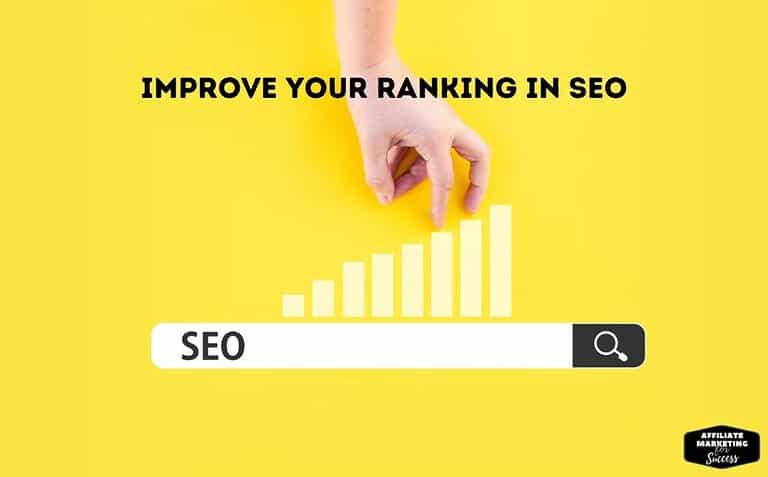Top Google Ranking Factors in 2024: A Data-Backed Guide
In the ever-evolving landscape of search engine optimization (SEO), staying abreast of Google’s ranking factors is crucial for achieving higher visibility in Google search results.
This definitive guide provides a prioritized breakdown of these ranking factors, offering strategies for SEO success that are both actionable and up-to-date.
Understanding E-E-A-T for SEO Success
Google emphasizes Experience, Expertise, Authoritativeness, and Trustworthiness (E-E-A-T) as critical components of high-quality content.Author Expertise Validation
- Credentials and Experience: Highlight the author’s qualifications, certifications, and industry experience. For instance, if you’re focusing on how to create evergreen content, ensure the author is knowledgeable in content marketing.
- Awards and Recognitions: Showcase any accolades or industry awards received.
Expert Quotes and Citations
Incorporate insights from industry leaders to add credibility. For example:“Quality content is the backbone of SEO. Without it, other optimization efforts are futile.” — John Mueller, Google’s Webmaster Trends Analyst
Links to Scientific Studies or Research Data
Support your content with reputable sources. Linking to studies enhances trustworthiness.Professional Author Bio with Social Proof
Include a detailed author bio that connects with the audience, demonstrating authority in the field.Clear Authorship Markup Using Schema
Implement authorship schema markup to help search engines associate content with its author correctly.Comprehensive On-Page SEO Factors
Optimizing on-page elements is vital for improving Google ranking and enhancing user experience.3.1. Content Quality and Relevance
Priority Level: ⭐⭐⭐⭐⭐Creating high-quality content that meets user intent is paramount.- Conduct Keyword Research: Use tools to find relevant keywords. Understand search intent behind each keyword.
- Use LSI Keywords: Incorporate semantically related terms to enrich content. Refer to our guide on SEO writing for more details.
- Content Depth Indicators: Include word count, reading time, and difficulty level to set user expectations.
| Primary Keyword | LSI Keywords |
|---|---|
| Content Quality | high-quality content, content marketing |
| SEO Strategies | ranking factors, search engine optimization |
| User Experience | UX design, mobile optimization |
3.2. Advanced On-Page Elements
Priority Level: ⭐⭐⭐⭐Enhance on-page SEO with advanced techniques.- Table of Contents with Jump Links: Improve navigation and chances of appearing in featured snippets.
- Internal Linking Strategy: Link to relevant content within your site, like mastering SEO best practices.
- Schema Markup: Implement FAQ, HowTo, and BreadcrumbList schemas to provide structured data to search engines.
3.3. User Intent Coverage
Priority Level: ⭐⭐⭐⭐Understanding and catering to user intent boosts engagement and rankings.- Search Intent Matrix: Map out different intents (informational, navigational, transactional) for your target keywords.
- Content Gaps Analysis: Identify and fill gaps in your content to outdo competitors.
- Multiple Content Formats: Use videos, infographics, and text to cater to different learning styles.
Off-Page SEO and Competitive Analysis
Building authority through off-page optimization is key for higher SEO ranking.4.1. Backlinks and Link Building Strategies
Priority Level: ⭐⭐⭐⭐⭐Quality backlinks remain a top ranking factor.- Guest Posting: Contribute to authoritative sites in your niche.
- Competitor Analysis: Use tools to analyze competitors’ backlinks and identify opportunities. Check out our link-building strategies for in-depth tactics.
- Disavow Toxic Links: Regularly audit your backlink profile to maintain a healthy domain authority.
4.2. Social Signals and User Engagement
Priority Level: ⭐⭐⭐While social media signals are indirect, they contribute to increased brand visibility.- Engage on Platforms: Share your content on relevant platforms.
- User-Generated Content: Encourage reviews and testimonials to build trust.
- Interactive Elements: Add polls or calculators to boost engagement.
Technical SEO: Advanced Optimization Techniques
Technical SEO ensures that your site is accessible and provides a solid foundation for other strategies.5.1. Core Web Vitals and Site Speed
- Optimize Images: Use next-gen formats like WebP.
- Minimize JavaScript and CSS: Reduce render-blocking resources.
- Use Content Delivery Networks (CDNs) For faster global content delivery.
| Metric | What It Measures | Optimal Value |
|---|---|---|
| Largest Contentful Paint | Loading Performance | ≤ 2.5 seconds |
| First Input Delay | Interactivity | ≤ 100 milliseconds |
| Cumulative Layout Shift | Visual Stability | ≤ 0.1 |
5.2. Mobile-Friendliness and PWA Implementation
Priority Level: ⭐⭐⭐⭐⭐With mobile searches surpassing desktop, mobile-friendliness is non-negotiable.- Responsive Design: Ensure your site adapts to all screen sizes.
- Progressive Web Apps (PWA): Enhance user experience with app-like features.
- Mobile-Specific Optimizations: Optimize touch elements and navigation for mobile users.
5.3. Crawlability and Indexability
Priority Level: ⭐⭐⭐⭐If search engines can’t crawl your site, it won’t rank.- XML Sitemap: Regularly update and submit to Google Search Console.
- Robots.txt Optimization: Ensure important pages aren’t blocked.
- Fix Errors: Monitor Google Search Console for crawl errors.
Leveraging Local SEO Elements
For businesses targeting local customers, local SEO is essential.- Google Business Profile Optimization: Claim and optimize your listing.
- Local Keywords: Incorporate location-specific keywords.
- Customer Reviews: Encourage satisfied customers to leave positive reviews.
- Local Business Schema: Implement schema markup to enhance local visibility.
Content Freshness and Multimedia Enhancement
Regularly updating content signals to Google that your site is current and relevant.- Content Updates: Refresh old posts with new information.
- Change Log: Maintain a revision history.
- Future Predictions: Include industry forecasts to establish authority.
- Multimedia Elements: Embed custom infographics, videos, and step-by-step images to enhance user engagement.
Debunking Common SEO Myths
Understanding what’s outdated or incorrect is as important as knowing best practices.- Myth 1: More Keywords Improve RankingReality: Keyword stuffing harms your ranking. Focus on natural content that meets user intent.
- Myth 2: Meta Keywords Affect SEOReality: Meta keywords are ignored by Google. Prioritize meta descriptions and title tags.
- Myth 3: Link Quantity Over QualityReality: Quality trumps quantity. Few high-authority links are better than many low-quality ones.
Actionable SEO Optimization Strategies
- Perform Regular SEO Audits: Identify and fix issues proactively. Refer to our guide on doing an SEO audit.
- Leverage AI Tools: Utilize AI for keyword research, content creation, and data analysis. Explore AI-powered tools for SEO.
- Optimize for Voice Search: With the rise of smart devices, tailoring content for voice queries is crucial. Understand the impact of voice search on SEO here.
- Implement Advanced Schema Markup: Use HowTo, FAQ, and Article schemas to enhance SERP features.
- Enhance User Experience: Offer features like dark mode support, print-friendly versions, and accessibility options.
Conclusion
Achieving SEO success is a multifaceted process involving careful attention to Google’s ranking factors. By prioritizing content quality, technical excellence, and user experience, you position your website for higher visibility in search engine results.Remember, SEO is an ongoing journey. Stay updated with algorithm changes, continuously optimize your strategies, and focus on providing value to your audience.FAQs
1. What is the most important Google ranking factor?Content quality and relevance are paramount. Providing valuable, authoritative content that meets user intent is the foundation of SEO success.About the Author
As a seasoned digital marketing strategist with over a decade of experience, I specialize in SEO, content marketing, and leveraging AI technologies. My mission is to help businesses navigate the complexities of search engine optimization to achieve tangible results.For more insights, explore my guide on building an effective SEO strategy.Next Steps:
References
Reference management: A critical element of scientific writing (PMC)
With the rapid growth of medical science, the number of scientific articles contributing to medical literature has increased significantly in recent years. Owing to considerable variation of formatting in different citation styles, strict adherence…
Guide for authors: Journal of Cleaner Production, ISSN 0959-6526 | ScienceDirect.com by Elsevier
Read the latest articles of Journal of Cleaner Production at ScienceDirect.com, Elsevier’s leading platform of peer-reviewed scholarly literature
How can I determine if an author is credible? – LibAnswers
Strategies to determine an author’s credibility vary by source
General Research and Writing Practices | SpringerLink
Published articles contribute to ongoing conversations among scientists. To participate in this conversation, authors structure their manuscript in a standard format so that readers can quickly understand it. Articles deploy scientific arguments that build on and…
Preserving the Integrity of Citations and References by All Stakeholders of Science Communication (PMC)
Citations to scholarly items are building bricks for multidisciplinary science communication. Citation analyses are currently influencing individual career advancement and ranking of academic and research institutions worldwide.
Debunk the Junk Flashcards | Quizlet
Study with Quizlet and memorize flashcards containing terms like, according to the animation, what is the first thing to look for in any form of content, whether it is video, photo, or article, in order to start verifying its credibility, true or false if health information comes from a supplement…
Frontiers | Science Citation Knowledge Extractor
The importance of academic publications is often evaluated by the number of and impact of its subsequent citations.
Evaluating Sources Flashcards | Quizlet
Study with Quizlet and memorize flashcards containing terms like.org,.gov,.edu, and more.
I’m Alexios Papaioannou, an experienced affiliate marketer and content creator. With a decade of expertise, I excel in crafting engaging blog posts to boost your brand. My love for running fuels my creativity. Let’s create exceptional content together!














